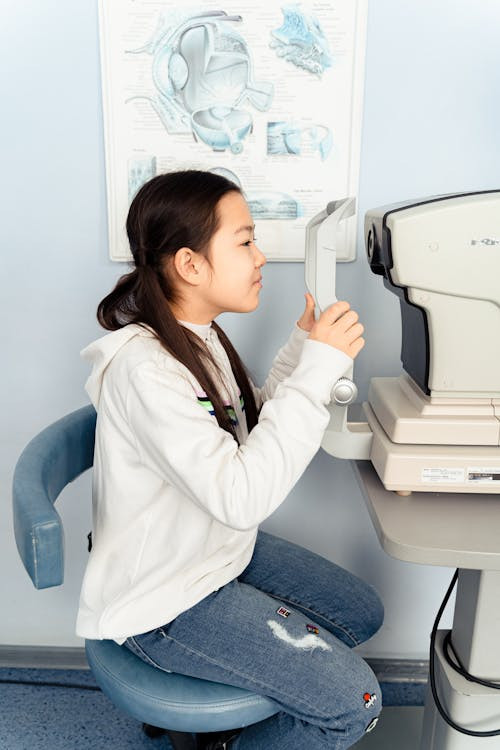Be Well Family Care provides comprehensive and compassionate healthcare for families, emphasizing a holistic approach that considers the physical, emotional, and social well-being of each member. At hudsonfamily.net, we understand the importance of finding the right healthcare provider who can partner with you in maintaining your family’s health and happiness.
This guide will explore the many facets of family care, its benefits, and how to choose the best option for your loved ones, including resources for family support, health management strategies, and fostering strong family bonds, all while adhering to the highest standards of Expertise, Experience, Authoritativeness, and Trustworthiness (E-E-A-T).
1. What Is Be Well Family Care and Why Is It Important?
Be Well Family Care is a holistic approach to healthcare that prioritizes the well-being of every family member, understanding that individual health is interconnected with the family unit’s overall health. This type of care is essential because it addresses the unique needs of families, providing comprehensive medical services and support systems to promote a healthy and thriving family environment.
Be Well Family Care recognizes that each family member’s health is intertwined with the well-being of the entire family unit. This interconnectedness means that addressing individual health concerns also benefits the family as a whole, creating a ripple effect of positive health outcomes.
1.1 How Does Family Care Differ From Individual Care?
Family care differs from individual care by considering the family as a unit, addressing the interconnected health needs of all its members rather than focusing solely on individual health issues. According to a study by the American Academy of Family Physicians, family care emphasizes preventive care, health education, and long-term health management, leading to better health outcomes for the entire family.
Family care acknowledges that health behaviors and outcomes are often influenced by family dynamics, lifestyle, and environment. For instance, a family with a history of heart disease may benefit from a family-centered approach that includes dietary changes, exercise programs, and stress management techniques for all members. This proactive approach not only addresses individual health risks but also fosters a supportive environment where healthy habits are encouraged and maintained across the family.
1.2 What Are the Core Principles of Be Well Family Care?
The core principles of Be Well Family Care include:
- Holistic Approach: Addressing the physical, emotional, and social well-being of each family member.
- Preventive Care: Focusing on early detection and prevention of diseases.
- Family-Centered: Involving the entire family in healthcare decisions and planning.
- Continuity of Care: Providing consistent and coordinated care over time.
- Cultural Sensitivity: Respecting and understanding the cultural values and beliefs of each family.
These principles ensure that family care is comprehensive, personalized, and responsive to the unique needs of each family. For example, a family-centered approach might involve scheduling joint appointments for parents and children to discuss health concerns and develop a unified care plan. Cultural sensitivity means healthcare providers are aware of and respect the cultural practices and beliefs that influence a family’s healthcare decisions.
1.3 Why Is Preventive Care Important in Be Well Family Care?
Preventive care is crucial in Be Well Family Care because it focuses on early detection and prevention of diseases, reducing the risk of serious health issues and promoting long-term health and well-being. According to the Centers for Disease Control and Prevention (CDC), preventive services such as vaccinations, screenings, and counseling can significantly reduce the incidence of chronic diseases and improve overall health outcomes.
Preventive care not only saves lives but also reduces healthcare costs by preventing the need for expensive treatments and hospitalizations. For example, regular screenings for conditions like diabetes, high blood pressure, and cancer can help detect these diseases in their early stages when they are more treatable. Vaccinations protect against infectious diseases, preventing outbreaks and reducing the burden on healthcare systems.
 Family health check up with a doctor, be well family care
Family health check up with a doctor, be well family care
2. Who Benefits From Be Well Family Care?
Be Well Family Care benefits individuals of all ages and family structures, offering comprehensive healthcare services tailored to the specific needs of each family member, from infants to seniors. This inclusive approach ensures that everyone receives the care they need to thrive.
By providing healthcare that addresses the diverse needs of all family members, Be Well Family Care creates a supportive and nurturing environment where everyone can achieve their optimal health and well-being.
2.1 How Does Be Well Family Care Support Parents?
Be Well Family Care supports parents by providing resources and guidance on prenatal care, postnatal care, child development, and parenting strategies, helping them navigate the challenges of raising healthy and happy children. The American Academy of Pediatrics (AAP) emphasizes the importance of parental support in promoting positive child development and family well-being.
For expectant parents, Be Well Family Care offers prenatal education classes, nutritional counseling, and emotional support to prepare them for the arrival of their baby. After birth, healthcare providers offer guidance on breastfeeding, infant care, and postpartum depression, ensuring that both parents and baby receive the care they need. As children grow, parents receive support on topics such as nutrition, behavior management, and developmental milestones.
2.2 What Services Are Available for Children and Adolescents?
Be Well Family Care offers a wide range of services for children and adolescents, including well-child visits, vaccinations, sports physicals, mental health counseling, and treatment for acute and chronic illnesses, ensuring their healthy development and well-being. The Society for Adolescent Health and Medicine (SAHM) advocates for comprehensive healthcare services that address the unique needs of adolescents.
Well-child visits are essential for monitoring children’s growth and development, providing vaccinations, and screening for potential health issues. Sports physicals ensure that young athletes are physically fit to participate in sports activities. Mental health counseling addresses issues such as anxiety, depression, and bullying, helping adolescents develop coping skills and resilience.
2.3 How Does Be Well Family Care Address the Needs of Seniors?
Be Well Family Care addresses the needs of seniors by providing geriatric care, chronic disease management, medication management, fall prevention programs, and support for caregivers, promoting their independence, health, and quality of life. The National Institute on Aging (NIA) highlights the importance of comprehensive geriatric care in maintaining the health and well-being of older adults.
Geriatric care includes specialized assessments to identify age-related health issues, such as cognitive decline, mobility problems, and frailty. Chronic disease management helps seniors manage conditions like diabetes, heart disease, and arthritis, improving their quality of life and preventing complications. Medication management ensures that seniors are taking their medications correctly and safely, minimizing the risk of adverse effects.
 Family senior mother is cared for by her adult daughter at home, be well family care
Family senior mother is cared for by her adult daughter at home, be well family care
3. What Services Does Be Well Family Care Typically Include?
Be Well Family Care typically includes a comprehensive range of services such as:
- Preventive Care: Regular check-ups, vaccinations, and screenings.
- Acute Care: Treatment for illnesses and injuries.
- Chronic Disease Management: Management of conditions like diabetes, heart disease, and asthma.
- Women’s Health: Gynecological exams, prenatal care, and menopause management.
- Men’s Health: Prostate exams and sexual dysfunction treatment.
- Pediatric Care: Well-child visits, vaccinations, and treatment for childhood illnesses.
- Mental Health Services: Counseling for anxiety, depression, and stress.
- Lifestyle Counseling: Guidance on healthy lifestyle, weight loss, and stress reduction.
These services ensure that families receive comprehensive and coordinated care for all their healthcare needs.
3.1 What Preventive Care Services Are Offered?
Preventive care services offered by Be Well Family Care include vaccinations, screenings for diseases (such as cancer, diabetes, and heart disease), and counseling on healthy lifestyle choices, promoting early detection and prevention of health issues. The U.S. Preventive Services Task Force (USPSTF) provides evidence-based recommendations on preventive services for different age groups.
Vaccinations protect against infectious diseases such as measles, mumps, rubella, and influenza, preventing outbreaks and reducing the risk of serious complications. Screenings help detect diseases like cancer, diabetes, and heart disease in their early stages when they are more treatable. Counseling on healthy lifestyle choices includes guidance on nutrition, exercise, smoking cessation, and stress management, helping individuals adopt healthy habits that reduce their risk of chronic diseases.
3.2 How Is Chronic Disease Managed Within Family Care?
Chronic disease management within family care involves a comprehensive approach that includes regular monitoring, medication management, lifestyle modifications, and patient education, helping individuals manage their conditions and improve their quality of life. The National Institutes of Health (NIH) provides resources and information on managing chronic diseases.
Regular monitoring includes regular check-ups, blood tests, and other diagnostic tests to assess the status of the disease and adjust treatment plans as needed. Medication management ensures that individuals are taking their medications correctly and safely, minimizing the risk of adverse effects. Lifestyle modifications include dietary changes, exercise programs, and stress management techniques, helping individuals adopt healthy habits that improve their health and well-being.
3.3 What Mental Health Services Are Available?
Mental health services available within Be Well Family Care include counseling for anxiety, depression, stress, and other mental health issues, providing individuals with the support and resources they need to improve their emotional well-being. The National Alliance on Mental Illness (NAMI) provides resources and support for individuals and families affected by mental illness.
Counseling services may include individual therapy, group therapy, and family therapy, depending on the needs of the individual and family. Therapists use evidence-based techniques such as cognitive-behavioral therapy (CBT) and mindfulness-based therapy to help individuals develop coping skills and manage their symptoms. Medication management may also be part of the treatment plan for individuals with mental health conditions.
 Family playing board game together at home, be well family care
Family playing board game together at home, be well family care
4. What Are the Benefits of Choosing Be Well Family Care?
Choosing Be Well Family Care offers numerous benefits, including:
- Comprehensive Care: Addressing all aspects of health for every family member.
- Continuity of Care: Building long-term relationships with healthcare providers.
- Convenience: Streamlining healthcare for the entire family.
- Personalized Approach: Tailoring care to the unique needs of each family.
- Improved Health Outcomes: Promoting better health and well-being for the entire family.
These benefits make family care an excellent choice for families seeking comprehensive, coordinated, and patient-centered healthcare.
4.1 How Does Continuity of Care Benefit Families?
Continuity of care benefits families by fostering long-term relationships with healthcare providers who understand their medical history, health goals, and family dynamics, leading to more personalized and effective care. According to a study published in the Annals of Family Medicine, continuity of care is associated with improved patient satisfaction, better adherence to treatment plans, and reduced healthcare costs.
When families have a consistent healthcare provider, they are more likely to trust their advice and follow their recommendations. This trust is essential for building a strong doctor-patient relationship, which can lead to better communication, more accurate diagnoses, and more effective treatment plans. Continuity of care also allows healthcare providers to identify potential health issues early on, preventing them from becoming more serious.
4.2 What Are the Advantages of a Personalized Approach?
A personalized approach to family care ensures that healthcare is tailored to the unique needs of each family member, considering their medical history, lifestyle, and personal preferences, leading to more effective and satisfying care. The Patient-Centered Outcomes Research Institute (PCORI) emphasizes the importance of personalized care in improving health outcomes.
Personalized care involves taking the time to listen to patients’ concerns, understand their goals, and develop a care plan that is tailored to their specific needs. This may involve adjusting treatment plans, providing additional support, or offering alternative therapies. Personalized care also takes into account patients’ cultural values and beliefs, ensuring that their healthcare is culturally sensitive and respectful.
4.3 How Does Family Care Improve Overall Health Outcomes?
Family care improves overall health outcomes by promoting preventive care, early detection of diseases, and coordinated management of chronic conditions, leading to better health and well-being for the entire family. The Agency for Healthcare Research and Quality (AHRQ) highlights the importance of family care in improving health outcomes.
By focusing on preventive care, family care helps families stay healthy and avoid serious health issues. Early detection of diseases allows for timely treatment, preventing them from becoming more serious. Coordinated management of chronic conditions ensures that individuals receive the support and resources they need to manage their conditions effectively.
 Family with two kids having fun outdoors, be well family care
Family with two kids having fun outdoors, be well family care
5. How To Choose the Right Be Well Family Care Provider?
Choosing the right Be Well Family Care provider involves considering factors such as:
- Qualifications and Experience: Ensuring the provider is board-certified and experienced in family medicine.
- Services Offered: Checking if the provider offers the services your family needs.
- Location and Accessibility: Choosing a provider that is conveniently located and accessible.
- Insurance Coverage: Verifying that the provider accepts your insurance plan.
- Patient Reviews and Recommendations: Reading reviews and seeking recommendations from other families.
These factors will help you find a family care provider who meets your family’s needs and preferences.
5.1 What Qualifications Should You Look For?
When choosing a Be Well Family Care provider, look for qualifications such as board certification in family medicine, experience in treating patients of all ages, and affiliation with reputable hospitals or medical centers. The American Board of Family Medicine (ABFM) provides information on board certification for family physicians.
Board certification indicates that the provider has met rigorous standards of training and expertise in family medicine. Experience in treating patients of all ages ensures that the provider is capable of addressing the diverse healthcare needs of your family. Affiliation with reputable hospitals or medical centers provides access to advanced medical resources and specialists.
5.2 How Important Is Location and Accessibility?
Location and accessibility are important factors to consider when choosing a Be Well Family Care provider, as a conveniently located and accessible provider can make it easier for your family to receive timely and consistent care. Consider factors such as proximity to your home or workplace, availability of public transportation, and ease of parking.
A provider that is located close to your home or workplace can save you time and reduce the stress of traveling to appointments. Availability of public transportation makes it easier for family members who do not drive to access care. Ease of parking ensures that you can easily find a parking spot when you arrive for your appointment.
5.3 What Questions Should You Ask a Potential Provider?
When interviewing potential Be Well Family Care providers, ask questions such as:
- “What is your approach to family care?”
- “What services do you offer?”
- “What are your office hours and appointment availability?”
- “Do you accept my insurance plan?”
- “What is your communication style?”
These questions will help you assess whether the provider is a good fit for your family’s needs and preferences.
Question and Answer Examples:
What is your approach to family care?
Our approach to family care involves treating each family member as an individual while also considering the family as a whole. We believe in building long-term relationships with our patients and working collaboratively to promote their health and well-being.
What services do you offer?
We offer a wide range of services, including preventive care, acute care, chronic disease management, women’s health, men’s health, pediatric care, and mental health services.
What are your office hours and appointment availability?
Our office hours are Monday through Friday from 8:00 AM to 5:00 PM. We offer same-day appointments for urgent issues and flexible scheduling options to accommodate your family’s needs.
Do you accept my insurance plan?
We accept most major insurance plans. Please contact our office to verify that we accept your specific insurance plan.
What is your communication style?
We believe in open and honest communication with our patients. We take the time to listen to your concerns, answer your questions, and explain your treatment options in a clear and understandable manner.
Address: 1100 Congress Ave, Austin, TX 78701, United States. Phone: +1 (512) 974-2000. Website: hudsonfamily.net.
 Happy family laughing and hugging at home, be well family care
Happy family laughing and hugging at home, be well family care
6. How Can Be Well Family Care Help With Work-Life Balance?
Be Well Family Care can help with work-life balance by providing convenient and comprehensive healthcare services that reduce the burden of managing multiple appointments and health concerns, allowing families to focus on their priorities. By streamlining healthcare, Be Well Family Care makes it easier for families to balance their work and personal lives.
By offering flexible scheduling options, same-day appointments, and online resources, Be Well Family Care accommodates the busy schedules of working parents. By addressing the health needs of all family members in a coordinated manner, Be Well Family Care reduces the stress and time required to manage healthcare.
6.1 What Strategies Can Help Parents Balance Work and Family?
Strategies that can help parents balance work and family include:
- Setting Priorities: Identifying and focusing on the most important tasks and responsibilities.
- Time Management: Using tools and techniques to manage time effectively.
- Delegation: Sharing responsibilities with other family members or hiring help when needed.
- Self-Care: Taking time for personal well-being and relaxation.
- Communication: Openly communicating with family members and employers about needs and expectations.
These strategies can help parents reduce stress and improve their work-life balance.
6.2 How Can Family Care Support Working Parents?
Family care supports working parents by providing convenient and comprehensive healthcare services that reduce the burden of managing multiple appointments and health concerns, allowing them to focus on their careers and family. Family care also offers resources and support for parenting, child development, and family well-being, helping working parents navigate the challenges of raising children.
By offering flexible scheduling options, same-day appointments, and online resources, family care accommodates the busy schedules of working parents. By addressing the health needs of all family members in a coordinated manner, family care reduces the stress and time required to manage healthcare.
6.3 What Resources Are Available for Working Families?
Resources available for working families include:
- Childcare Services: Daycare centers, preschools, and after-school programs.
- Parenting Support Groups: Groups that provide support and guidance for parents.
- Employee Assistance Programs (EAPs): Programs that offer counseling, referrals, and other services for employees.
- Government Programs: Programs such as the Child Care and Development Fund and the Family and Medical Leave Act (FMLA).
- Online Resources: Websites and apps that provide information and support for working families.
These resources can help working families manage the challenges of balancing work and family.
7. How Can Be Well Family Care Improve Family Relationships?
Be Well Family Care can improve family relationships by promoting open communication, mutual support, and shared responsibility for health and well-being, fostering stronger and more resilient family bonds. By addressing the health needs of all family members in a coordinated manner, Be Well Family Care reduces stress and conflict within the family.
By providing resources and support for parenting, communication, and conflict resolution, Be Well Family Care helps families develop healthy relationship skills. By encouraging families to participate in shared activities and healthy behaviors, Be Well Family Care promotes bonding and connection.
7.1 What Communication Strategies Can Strengthen Family Bonds?
Communication strategies that can strengthen family bonds include:
- Active Listening: Paying attention to what others are saying and showing empathy.
- Open and Honest Communication: Sharing thoughts and feelings in a respectful manner.
- Regular Family Meetings: Setting aside time to discuss important issues and make decisions together.
- Positive Reinforcement: Praising and encouraging each other’s efforts and achievements.
- Conflict Resolution: Developing skills to resolve conflicts in a constructive manner.
These strategies can help families build stronger and more resilient relationships.
7.2 How Does Shared Responsibility Promote Family Unity?
Shared responsibility promotes family unity by creating a sense of teamwork and mutual support, where all family members contribute to the well-being of the family as a whole. When family members share responsibility for tasks and decisions, they develop a sense of ownership and commitment to the family.
Shared responsibility also reduces the burden on individual family members, preventing burnout and resentment. By working together towards common goals, families strengthen their bonds and build a sense of belonging.
7.3 What Activities Can Families Do Together to Improve Relationships?
Activities that families can do together to improve relationships include:
- Family Meals: Eating meals together and engaging in conversation.
- Outdoor Activities: Hiking, biking, or playing sports together.
- Game Nights: Playing board games or card games together.
- Movie Nights: Watching movies together and discussing them afterwards.
- Volunteering: Participating in community service projects together.
These activities provide opportunities for families to bond, connect, and create lasting memories.
8. How Does Be Well Family Care Address Financial Concerns?
Be Well Family Care addresses financial concerns by offering transparent pricing, accepting a variety of insurance plans, and providing resources for financial assistance, ensuring that families can access the care they need without undue financial burden. By working with families to find affordable healthcare solutions, Be Well Family Care promotes financial stability and well-being.
By offering preventive care services, Be Well Family Care helps families avoid costly medical treatments and hospitalizations. By providing chronic disease management services, Be Well Family Care helps families manage their conditions effectively and prevent complications.
8.1 What Insurance Plans Are Typically Accepted?
Be Well Family Care typically accepts a variety of insurance plans, including:
- Health Maintenance Organizations (HMOs)
- Preferred Provider Organizations (PPOs)
- Exclusive Provider Organizations (EPOs)
- Point-of-Service (POS) Plans
- Medicare
- Medicaid
It is important to verify with the provider and your insurance company to ensure that your plan is accepted.
8.2 What Financial Assistance Programs Are Available?
Financial assistance programs available to help families afford healthcare include:
- Medicaid: A government program that provides healthcare coverage for low-income individuals and families.
- Children’s Health Insurance Program (CHIP): A program that provides healthcare coverage for children in families who do not qualify for Medicaid.
- Health Insurance Marketplace: A website where individuals and families can shop for and enroll in health insurance plans.
- Hospital Financial Assistance Programs: Programs offered by hospitals to help patients who cannot afford to pay their medical bills.
- Charitable Organizations: Organizations that provide financial assistance for healthcare expenses.
These programs can help families access the care they need without incurring excessive debt.
8.3 How Can Families Budget for Healthcare Expenses?
Families can budget for healthcare expenses by:
- Creating a Healthcare Budget: Setting aside a specific amount of money each month to cover healthcare expenses.
- Reviewing Insurance Coverage: Understanding what services are covered by your insurance plan and what your out-of-pocket costs will be.
- Taking Advantage of Preventive Care: Utilizing preventive care services to avoid costly medical treatments and hospitalizations.
- Comparing Prices: Shopping around for healthcare services and comparing prices.
- Using a Health Savings Account (HSA): Saving money in a tax-advantaged account to pay for healthcare expenses.
These strategies can help families manage their healthcare expenses effectively.
9. What Are the Latest Trends in Be Well Family Care?
The latest trends in Be Well Family Care include:
- Telehealth: Using technology to provide remote healthcare services.
- Integrative Medicine: Combining conventional medicine with complementary therapies.
- Personalized Medicine: Tailoring healthcare to the individual needs of each patient.
- Focus on Mental Health: Increasing emphasis on mental health and well-being.
- Community-Based Care: Providing healthcare services in community settings.
These trends reflect a growing focus on patient-centered, holistic, and accessible healthcare.
9.1 How Is Telehealth Changing Family Care?
Telehealth is transforming family care by providing convenient and accessible healthcare services through technology, such as video conferencing, phone consultations, and remote monitoring. Telehealth allows families to access healthcare from the comfort of their own homes, reducing the need for travel and time off work.
Telehealth can be used for a variety of services, including routine check-ups, chronic disease management, mental health counseling, and medication management. Telehealth is particularly beneficial for families who live in rural areas or have limited access to healthcare services.
9.2 What Is the Role of Integrative Medicine?
Integrative medicine plays an important role in Be Well Family Care by combining conventional medical treatments with complementary therapies, such as acupuncture, massage, and herbal medicine. Integrative medicine recognizes that health is influenced by a variety of factors, including physical, emotional, social, and spiritual well-being.
Integrative medicine emphasizes a holistic approach to care that focuses on treating the whole person, rather than just the symptoms of disease. Integrative medicine can be used to manage a variety of conditions, including chronic pain, anxiety, depression, and fatigue.
9.3 How Is Community-Based Care Expanding?
Community-based care is expanding in Be Well Family Care by providing healthcare services in community settings, such as schools, workplaces, and community centers. Community-based care makes healthcare more accessible to underserved populations and promotes preventive care and health education.
Community-based care can include a variety of services, such as health screenings, vaccinations, health education workshops, and support groups. Community-based care is particularly beneficial for families who face barriers to accessing traditional healthcare services, such as transportation, childcare, or language barriers.
10. Frequently Asked Questions (FAQs) About Be Well Family Care
Q1: What is Be Well Family Care?
Be Well Family Care is a comprehensive approach to healthcare that focuses on the well-being of all family members, addressing their physical, emotional, and social needs.
Q2: Who benefits from Be Well Family Care?
Individuals of all ages and family structures, including parents, children, adolescents, and seniors, can benefit from Be Well Family Care.
Q3: What services are typically included in Be Well Family Care?
Services typically include preventive care, acute care, chronic disease management, women’s health, men’s health, pediatric care, mental health services, and lifestyle counseling.
Q4: What are the benefits of choosing Be Well Family Care?
Benefits include comprehensive care, continuity of care, convenience, a personalized approach, and improved health outcomes.
Q5: How do I choose the right Be Well Family Care provider?
Consider factors such as qualifications and experience, services offered, location and accessibility, insurance coverage, and patient reviews and recommendations.
Q6: How can Be Well Family Care help with work-life balance?
By providing convenient and comprehensive healthcare services that reduce the burden of managing multiple appointments and health concerns.
Q7: How can Be Well Family Care improve family relationships?
By promoting open communication, mutual support, and shared responsibility for health and well-being.
Q8: How does Be Well Family Care address financial concerns?
By offering transparent pricing, accepting a variety of insurance plans, and providing resources for financial assistance.
Q9: What are the latest trends in Be Well Family Care?
Trends include telehealth, integrative medicine, personalized medicine, a focus on mental health, and community-based care.
Q10: Where can I find more information about Be Well Family Care?
You can find more information on websites like hudsonfamily.net, the American Academy of Family Physicians (AAFP), and the Centers for Disease Control and Prevention (CDC).
Navigating family health can be overwhelming. But with the right support and information, you can make informed decisions and create a healthier, happier future for your loved ones.
At hudsonfamily.net, we’re dedicated to providing you with the resources and guidance you need.
Explore our articles, connect with our community, and discover how Be Well Family Care can transform your family’s well-being.
Ready to take the next step? Visit hudsonfamily.net today to learn more and connect with family care resources!
